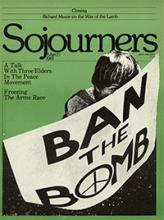In a meeting a few weeks ago, a member of my household asked the rest of us for advice on whether she should join her coworkers in attending ceremonies honoring the returned hostages. The fact that she was asking the question, and that none of us had a clear answer, served to summarize the deeply mixed emotions that some of us have had about the clamor surrounding the release of the hostages. We find ourselves saddened that our natural human impulse to be happy for the former captives and their families has been so complicated by the atmosphere of hostility toward the Iranian people and the public silence about the 25-year history of U.S. intervention in Iran that led to the taking of the hostages.
The way the hostages' welcome has been portrayed in the news media as a universal outpouring of patriotism and national unity has also been cause for uneasiness. Many Vietnam veterans are rightly upset that the hostages are receiving so much glory when many of them suffered much more and still haven't been welcomed back into American society. And we couldn't help but notice the conspicuous absence of yellow ribbons in our low-income, predominantly black neighborhood. For many of our neighbors, inadequate food, cramped living quarters, unjust imprisonment, and mistreatment by those in authority is the substance of daily life. They have seen little to cheer about in the release of the hostages.
The settlement that freed the hostages gives little reason to cheer either. The agreement fails almost completely to deal with the substantive political issues that lay behind the hostage drama. The United States did promise as part of the settlement to refrain from future interference in Iran's internal affairs. If the U.S. holds to that promise it will make Iran unique among the nations of the world.
Read the Full Article

